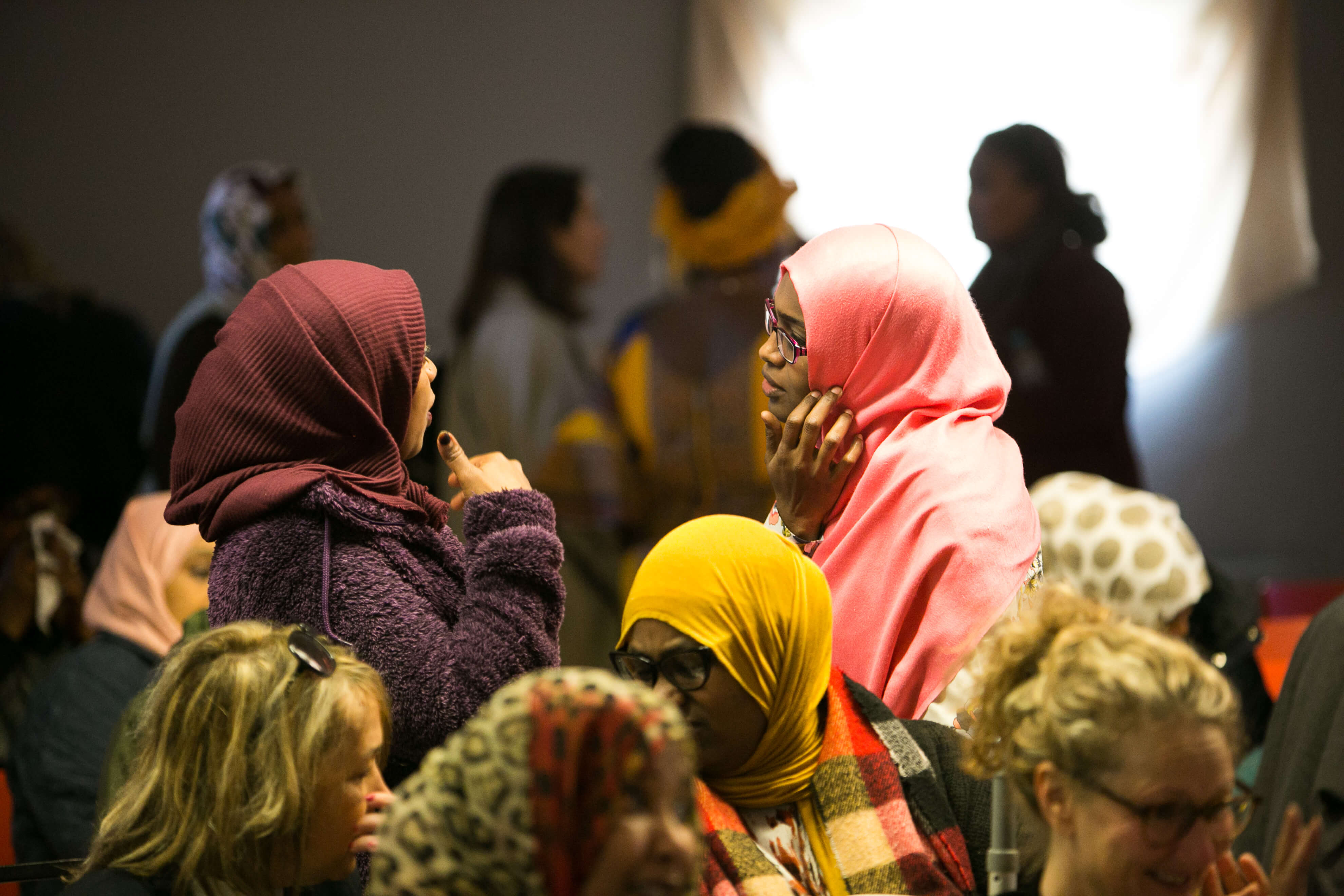Press Release: Launch of the ACCESS project aiming to facilitate access to support services for affected women
Breaking the silence on violence against migrant women
Today FORWARD (an African women led organisation for African women & girls) are launching the ACCESS awareness campaign, whilst their partners GAMS Belgium and Médicos del Mundo (Spain) launch in their respective countries. The objective of this project is to improve access to prevention, protection and support for migrant women confronted with various forms of violence. This is a European project co-financed by the European Commission’s REC programme, the Federation Wallonia-Brussels (PCI) as well as Equal.brussels.
Migrant women face a continuum of violence including female genital mutilation, sexual violence, partner violence, forced marriage and human trafficking. Each woman affected by violence has specific needs and although support services do exist in Europe they are not always easily accessible. There are many obstacles to accessing services and in practice it is sometimes impossible for women to find support.
The objective of the ACCESS project is to improve the prevention, protection and support of migrant women in Europe facing different forms of violence. “ACCESS” refers to “Appropriate Community-based Care and Empowering Support Services.”
The project is based on an awareness campaign, activities by and for affected communities on the issues of violence, an interactive mapping of support services, an online chat service, and the training of front-line professionals.
Step 1. Launching the awareness campaign.
Affected women do not always recognise that they are in a situation of violence. The objective of the online awareness campaign is therefore to facilitate the identification of such violence. Short videos were created about the emotions generated by violence. Four emotional states: fear, stress, disgust and pain. These videos were created with affected people to ensure a sense of identification. If one does not recognise the violence, they do recognise the emotions associated with it.
Step 2. Raising awareness among affected communities.
Peer educators are volunteers who were trained in tackling different forms of violence. They are to raise awareness within their communities. Involving affected communities is crucial to the fight against violence against migrant women. As Idil, ACCESS peer educator, testifies:
“For me, engaging with ACCESS was an intuitive decision. You can’t really explain it, there are things you like… And I like helping people. The ACCESS training has been very helpful to me. […] In addition, we treated different types of violence, only to realise that these all had a common origin. Violence against women takes different forms but is interrelated. Women experience many forms of violence during their lifetime. It’s a continuum. The profiles of the peer educators were very diverse, and we now have a reference person in the various migrant communities in Belgium.”
Step 3. Taking action.
The website www.we-access.eu launched today (21 November 2019) includes an online mapping of support services for migrant women facing violence in the United Kingdom, Belgium and Spain. The mapping is an evolving tool: it is possible for organisations to register directly on the website to facilitate access to their services. For migrant women, the system is simple: it is visual, easy to use, and precise. So they know exactly where to go according to their situation and needs.
ACCESS Website for full information
Step 4. Providing guidance to affected women.
The project will also offer online chat sessions, in different languages, to allow everyone to access appropriate support. It will be directly accessible through the website. Among the languages available: Arabic, Somali, Fulani, Tigrinya, English, Spanish, French. The goal being to provide guidance and support to the affected women.
Step 5. Ensuring adequate support.
Access to support services is essential, but these services must provide appropriate support. 150 front-line professionals (per country) have therefore been trained in the care of migrant women facing violence.

